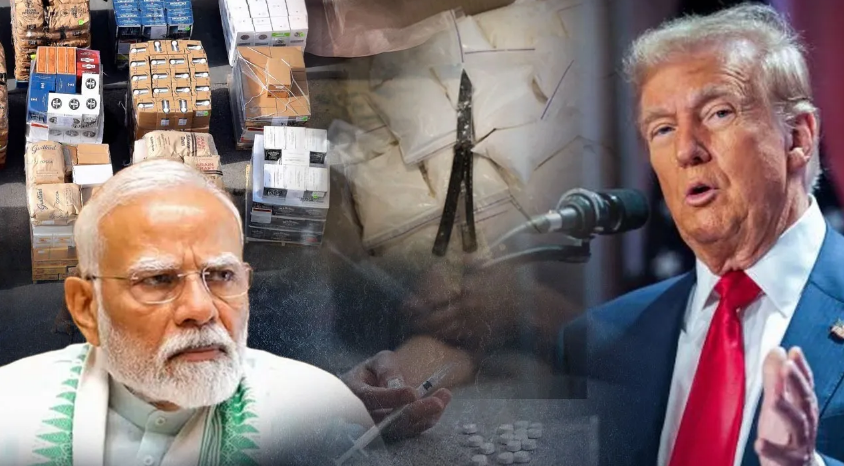In a significant move, the United States government under President Donald Trump has revoked the visas of several Indian company executives and their family members for allegedly being involved in the illegal trafficking of narcotic drugs. The U.S. Embassy in New Delhi announced the decision, stating it is part of Washington’s ongoing efforts to combat synthetic drugs like Fentanyl and safeguard American citizens from the threat of drug smuggling.
Stopping the flow of fentanyl and its precursors into the United States is one of our highest priorities. We have revoked visas for company executives and family for the unlawful involvement in controlled substance trafficking, including fentanyl. Those who facilitate the flow of… pic.twitter.com/atWupz7WLG
— U.S. Embassy India (@USAndIndia) September 18, 2025
Fentanyl, a synthetic opioid nearly 50 times stronger than heroin, has been one of the leading causes of overdose deaths in the United States. American authorities have previously alleged that chemical precursors used to produce fentanyl are being illegally sourced from India. Citing provisions under Sections 221(i), 212(a)(2)(C), and 214(b) of the Immigration and Nationality Act, the embassy confirmed that the visa cancellations cover both executives and their families. It also warned that future visa applications from individuals associated with fentanyl-related businesses will face heightened scrutiny.
“U.S. Embassy in New Delhi is committed to combating drug trafficking. We will block individuals, companies, and their families involved in the illegal production and transport of narcotics from entering the United States,” said Jorgan Andrews, Charge d’Affaires. The embassy added that the United States government and the Government of India are working together to counter this international threat and protect citizens of both nations from illegal narcotics.
Diplomatic observers have voiced concerns that this decision could impact bilateral relations between the two countries. However, the identities of the accused individuals have not been disclosed, and the Government of India has yet to issue an official response.






